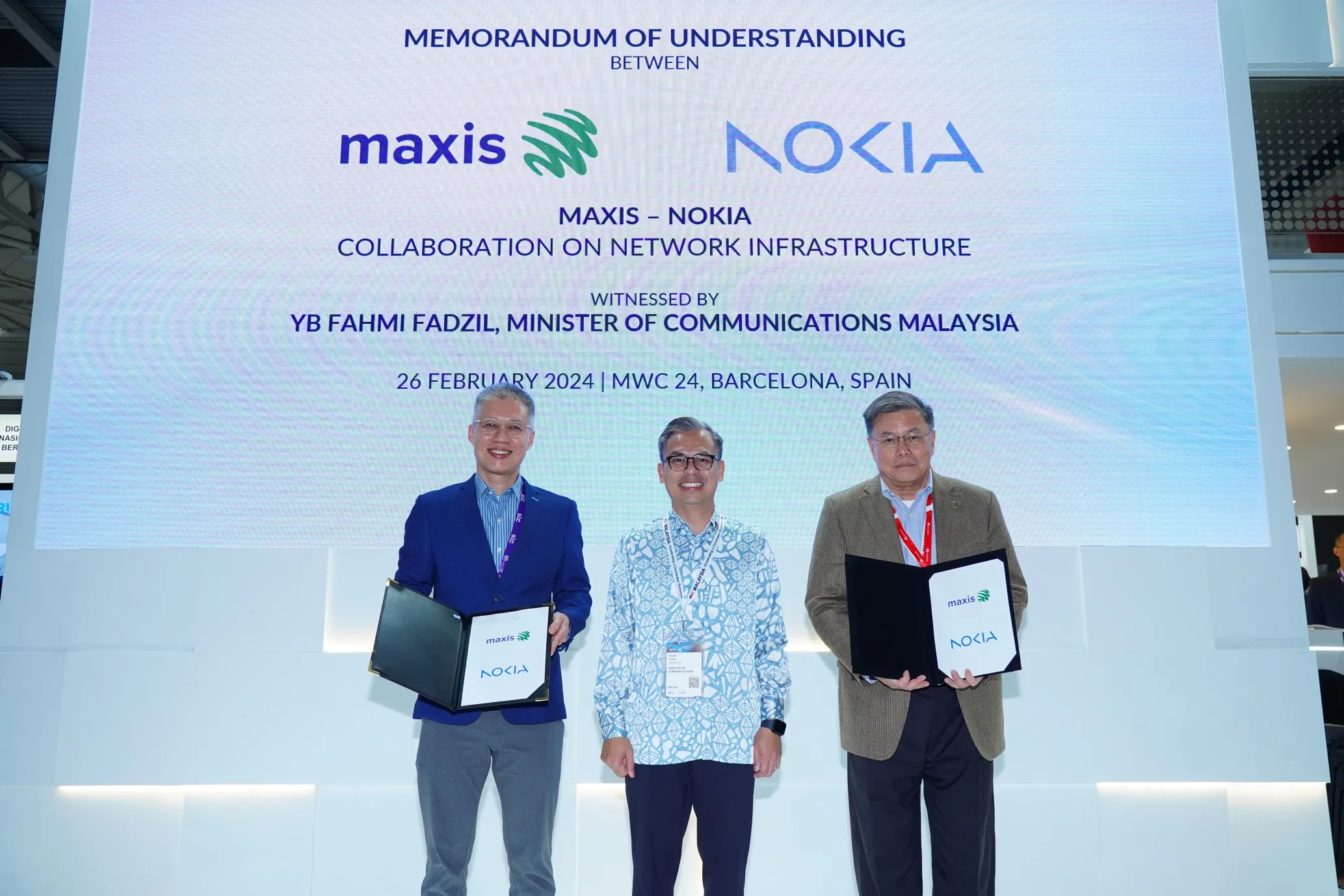Maxis Partners with Nokia to Advance its 5G Core Ecosystem for Future Connectivity Demands
Maxis, a prominent Malaysian telecommunications company, and Nokia have recently forged a strategic partnership with the goal of enhancing their cooperation and advancing next-generation connectivity solutions.
Under this collaboration, Maxis is set to collaborate closely with Nokia to investigate the integration of cutting-edge technologies aimed at enhancing the robustness of Maxis’ networks, particularly focusing on bolstering security and reliability. One notable initiative involves the adoption of quantum-safe optical networking, a state-of-the-art technology designed to defend against potential threats posed by both classical and quantum computers.
Moreover, the partnership will entail joint efforts from both companies to explore innovative approaches for facilitating efficient and scalable connectivity across various cloud environments, with a particular emphasis on enhancing network security measures.
Maxis has recently partnered with Nokia, a prominent player in the technology industry, to bolster its 5G Core ecosystem, aiming to cater to the evolving connectivity needs of the future. This collaboration involves the deployment of cutting-edge cloud-native solutions, empowering Maxis to fully harness the potential of 5G technology.
Goh Seow Eng, the CEO of Maxis, expressed enthusiasm about the enhanced partnership with Nokia, emphasizing the importance of innovation in their network ecosystem and 5G services. He highlighted their commitment to staying ahead of customer demands by delivering fast, secure, and reliable connectivity solutions.
Furthermore, Maxis recently achieved a significant milestone by conducting what it claims to be the first 5G-Advanced technology trial in Malaysia and Southeast Asia. This achievement was made possible through a collaboration with Huawei, a renowned Chinese technology vendor.
Maxis emphasized that during the 5G-Advanced trial, they conducted a live speed test to showcase the potential of 5G-Advanced, reaching ultra-fast peak speeds of up to 8Gbps. Also referred to as ‘5.5G’, this technology pledges a significant enhancement in speed, connected devices, and latency, promising up to 10 times improvement compared to current 5G networks, as stated by Maxis.
The demonstration booths presented various interactive applications of this technology, including low-latency live streaming of different views of Kuala Lumpur city center, live 3D content, and immersive augmented reality (AR) experiences.
Furthermore, Maxis underscored the potential of 5.5G to support digitalization, automation, and the internet of things (IoT) across various sectors. These capabilities are poised to facilitate the digital transformation of core industries such as high-end manufacturing, automotive, and smart transportation. Additionally, they will enable cutting-edge visual communication through 3D and extended reality (XR). Moreover, Maxis noted that 5G-Advanced will aid in the development of cost-effective IoT solutions.
The Malaysian government had previously announced plans for Malaysia to transition to a dual 5G network once the state-operated 5G network, Digital Nasional Berhad (DNB), attained 80% coverage in densely populated areas. This milestone was reached by the conclusion of last year.
Presently, all telecommunication companies in Malaysia are providing 5G services utilizing DNB’s network infrastructure.
Recent statements from the Malaysian government have confirmed that the special committee overseeing the country’s 5G network implementation is actively preparing a Cabinet memorandum. This memorandum will soon be discussed to determine the feasibility of introducing a second 5G network in the nation.



